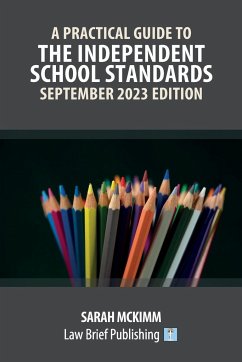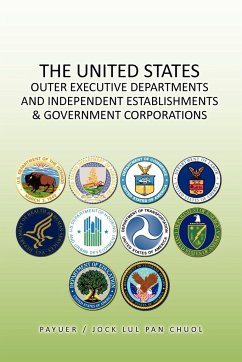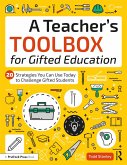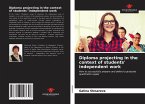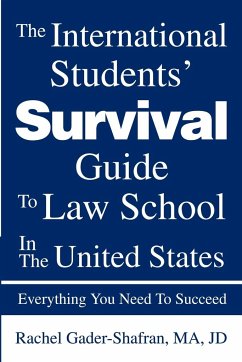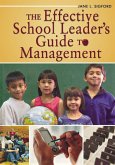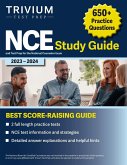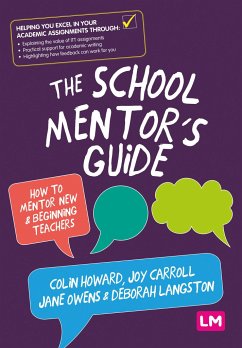While the state has extensive powers and duties in relation to state-funded education, independent schools largely sit outside that regime on condition that they meet prescribed standards. 'A Practical Guide to the Independent School Standards' introduces the standards from a rights-based perspective and explains their role in connection with registration and inspection of independent schools. Busy practitioners are signposted to the key guidance and regulations incorporated into the deceptively short standards. The parts of education law which do and do not apply to the independent sector are clearly identified. After outlining the standards and linking to relevant legislation and recent case law which helps with interpretation, this book shows how the standards can be applied to common issues affecting pupils such as SEND, mental health, peer-on-peer abuse, admissions and exclusions. The closing chapters consider the role of the standards when things go wrong whether it is a parent wishing to complain about a school, a school questioning the findings of a compliance inspection and/or responding to action by the regulator. Intended primarily for education lawyers, 'A Practical Guide to the Independent School Standards' will also be an invaluable accessible resource for independent schools, bursars, governors and trustees, and parents. ABOUT THE AUTHOR Sarah McKimm is a solicitor who, after a first career in commercial litigation, has been specialising in education law for over 20 years. In 2008 she became Principal Solicitor and later Deputy General Secretary for the Independent Schools Council. She was also until recently Head of Legal & Policy at the Independent Schools Inspectorate (ISI). CONTENTS List of Terms and Abbreviations PART ONE - INTRODUCTION Chapter One - State and Independent Education - How They Differ and Why Chapter Two - Registration Requirements for Independent Schools Chapter Three - Overview of The Independent School Standards Chapter Four - Key Provisions of The Equality Act 2010 Chapter Five - Regulated Activity PART TWO - THE STANDARDS Chapter Six - The Quality of Education Standards Chapter Seven - The Curriculum Standard - ISS Part 1 Chapter Eight - Relationships, Education and Relationships and Sex Education (RSE) Chapter Nine - The Teaching Standard Chapter Ten - The SMSC Standard (Social, Moral, Spiritual and Cultural Development of Pupils) - ISS Part 2 Chapter Eleven - The Safeguarding Standard - ISS Part 3 Chapter Twelve - Other Welfare, Health and Safety Standards - ISS Part 3 Continued Chapter Thirteen - The Suitability Standards - ISS Part 4 Chapter Fourteen - The Premises and Accommodation Standard - ISS Part 5 Chapter Fifteen - The Provision of Information Standard - ISS Part 6 Chapter Sixteen - The Complaints-Handling Standard - ISS Part 7 Chapter Seventeen - The Leadership and Management Standard - ISS Part 8 PART THREE - APPLYING THE STANDARDS TO COMMON ISSUES Chapter Eighteen - What the Standards Say About Pastoral Care Chapter Nineteen - What the Standards Say About Child-on-Child Sexual Abuse Chapter Twenty - What the Standards Say About Special Educational Needs and Disabilities (SEND) Chapter Twenty-One - What the Standards Say About Mental Health Issues Chapter Twenty-Two - What the Standards Say About Admissions and Exclusions Chapter Twenty-Three - When Things Go Wrong Chapter Twenty-Four - In Conclusion - Future Developments
Hinweis: Dieser Artikel kann nur an eine deutsche Lieferadresse ausgeliefert werden.
Hinweis: Dieser Artikel kann nur an eine deutsche Lieferadresse ausgeliefert werden.

